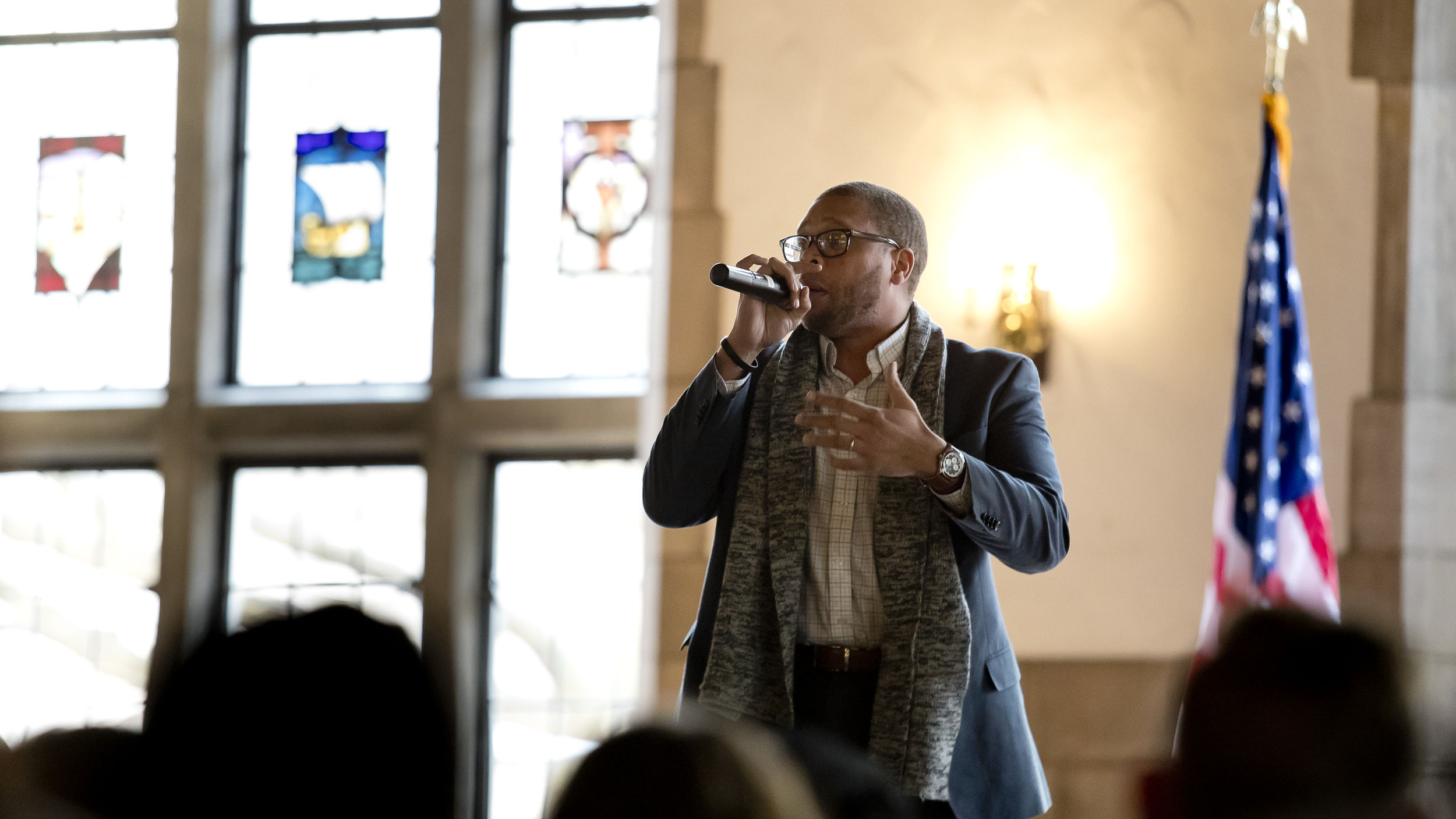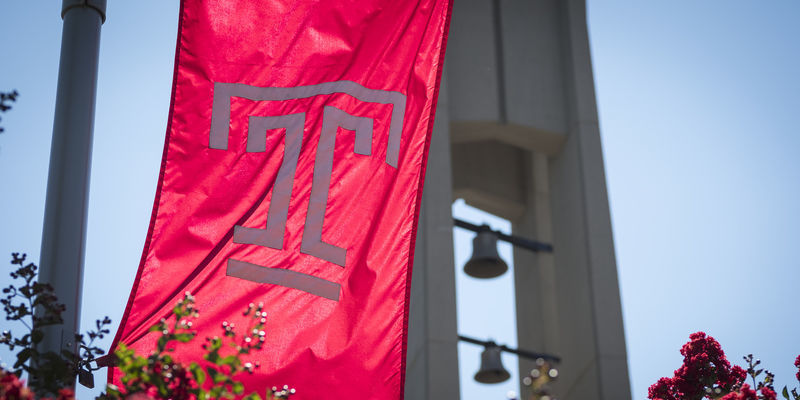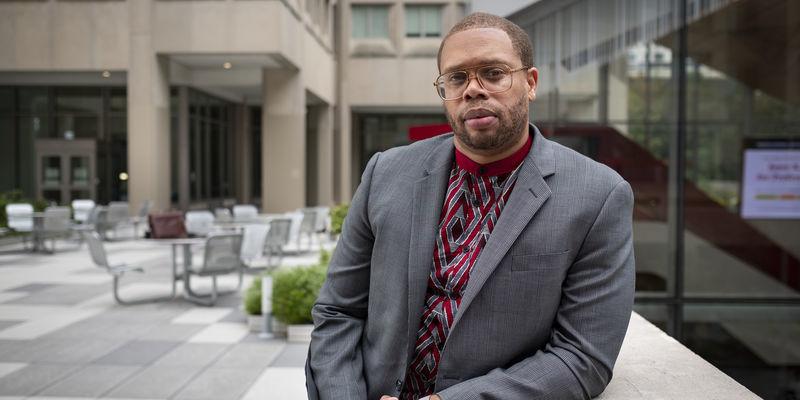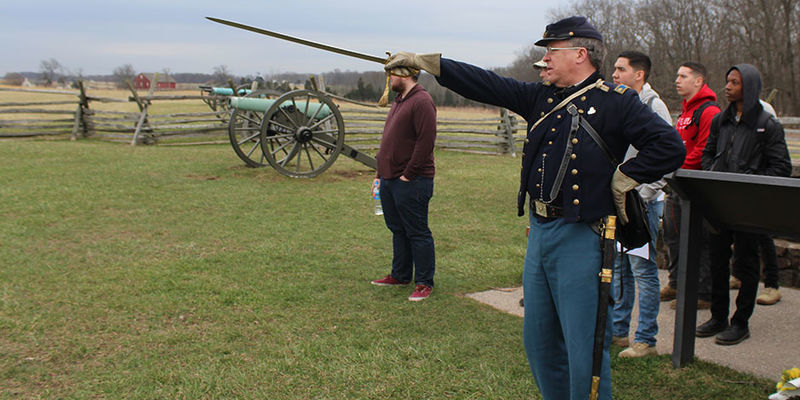Temple experts remain committed to anti-racism work ahead of Juneteenth 2022
With the holiday taking place near the two-year anniversary of the Black Lives Matter protests of 2020, attorney Timothy Welbeck and historian Gregory Urwin discuss the impact that recent events have had on the topic of race in their respective fields.

Juneteenth often serves as a time for discussions about racism and the ways it continues to affect American society. This year, the holiday also nearly aligns with the two-year anniversary of the start of the Black Lives Matter protests in the summer of 2020. The murders of Breonna Taylor, Ahmaud Arbery and George Floyd, and the protests that followed served as catalysts for another major American confrontation with its racist past.
Timothy Welbeck, acting director of Temple’s Center for Anti-racism Research, explained why the events of the summer of 2020 had such profound effects on Americans.
“By the time we reached May 25, 2020, there was already a sense of unrest,” Welbeck said. “Breonna Taylor’s name was beginning to become more widespread. People were familiar with Ahmaud Arbery’s story and the advocacy around him. Then the video began to circulate of Derek Chauvin kneeling on George Floyd’s neck for nine minutes and 29 seconds, and in many ways, it crystallized many of the arguments that are made around reducing police presence.”
“By June 2020, we had protests in all 50 states,” he continued. “There are estimates that 15 to 26 million people within the United States participated in these protests, and that’s what began to signal that this time was different in terms of the level of attention that was brought to a particular incident.”
Some of the reactions that rippled through the country in the aftermath of the protests have been referred to by scholars as a racial reckoning. These reactions include conversations around police reform, the establishment of Junteenth as a federal holiday and its corresponding increased observance by companies, and a greater willingness among Americans to educate themselves on the topic of race.
“Books like Stamped from the Beginning, White Fragility and How to Be an Antiracist quickly became international bestsellers, and particularly in the United States they were beginning to get more popularity,” Welbeck said. “We also began to see schools at least express a value in anti-racism work, education, curriculum—things of that nature.”
More recently, however, Welbeck has been paying attention to a series of coordinated efforts to undo the progress and momentum achieved by the racial reckoning. Some have referred to these efforts as the “unreckoning,” and Welbeck and his colleague Gregory Urwin, a professor of history in the College of Liberal Arts, have found that efforts to immediately undo racial progress are an American trademark.
“Every meaningful effort toward racial equality in the United States has been met with some type of coordinated backlash,” Welbeck said. “Particularly, the end of slavery and the Reconstruction are immediately followed by the era of Jim Crow, Black Codes and the lynching era. That post–Civil Rights era was followed by a heightened sense around trying to forestall desegregation efforts. We’ve seen attempts to stifle the affirmative action era, things like that.”
A recent example of this coordinated backlash centers around the topic of critical race theory (CRT), which Welbeck says has been used in an attempt to keep productive conversations about race out of American classrooms.
“That summer right before the 2020 school year started was when we were seeing reports from literally across the country of parents impassionately screaming about CRT. ‘Don’t bring it to our schools. It’s racism against white people. Don’t indoctrinate our children,’” Welbeck said.
“It’s a very coordinated, deliberate campaign that’s funded and organized around trying to disarm any type of assessment of racial inequity in the United States, which is why if you look at some of the legislation from the 26 states that said to have banned critical race theory, they’re not actually banning critical race theory, but they’re banning terms like diversity, equity and inclusion,” he continued. “They’re banning the usage of words like oppression.”
Confronting our nation’s racist history is something that Urwin has committed to doing throughout his career in the field of history. In doing so, he has been met with attempts to disarm his own work in a reaction similar to the “unreckoning” that Welbeck and other scholars talk about.
“Like Martin Luther King Jr., I thought that the arc of the universe bends inevitably toward justice,” Urwin said as he discussed growing up watching racial demonstrations, witnessing the passing of legislation such as the Civil Rights Act of 1964 and the Voting Rights Act of 1965 and finally the election of a Black president, Barack Obama. “But, you know, there has been an attempt to roll back those gains.”
 Gregory Urwin has been involved in projects like the feature film Glory and the recent History Channel special Black Patriots: Heroes of the Civil War for his military history expertise. (Courtesy of Gregory Urwin)
Gregory Urwin has been involved in projects like the feature film Glory and the recent History Channel special Black Patriots: Heroes of the Civil War for his military history expertise. (Courtesy of Gregory Urwin)
Urwin has been branded a “heritage violator” by the Sons of Confederate Veterans for his work uncovering war crimes committed by Confederate soldiers against wounded and captured members of the United States Colored Troops.
“There are some people who, either because of fear or whatever other motives, are trying to erase the advances made by African Americans and other minorities. Many of these people have waged grassroots campaigns to not only take over state legislatures but also local school boards, so that you could be accused of teaching critical race theory, whatever that is, if you say slavery was the most important cause of the Civil War,” Urwin said. “But that certainly has inspired me to redouble my efforts in the kind of work I’m doing, and I get the feeling from other colleagues who are working with the intersection of racial and military history that they feel the same way.”
Over the course of the past decade, Urwin has shifted the focus of his work to the African Americans who sought freedom during the American Revolution by aligning themselves with the British. He is currently working on a book on the subject, titled When Freedom Wore a Red Coat.
Urwin also recently helped produce the permanent exhibit at Philadelphia’s Museum of the American Revolution titled Finding Freedom, which tells the true story of five African Americans involved in the Revolution—four of whom sought freedom by joining the British.
“When inner-city school groups come to the museum and they see this, the kids are delighted, because these are people who look like them,” Urwin said. “The African Americans who joined the British were trying to do what other Americans wanted to do, and that was to enjoy the fruits of liberty. So, it makes these kids feel like they are a part of the whole sweep of American history, and I hope it encourages them to search through their own family histories and find other people with whom they can identify.”
Welbeck says he’s seen a cooling off of the energy that emerged following the protests of 2020, but experts such as himself and Urwin have remained committed to their work. Urwin hopes to have When Freedom Wore a Red Coat published within five years, while Welbeck is preparing for the opening of the Center for Anti-racism Research.
“Even when it’s not the topic of the day, there still needs to be people committed to the work of anti-racism and the work of equality and equity in our nation,” Welbeck said. “Temple’s Center for Anti-racism Research is a great example of that. It was birthed during that period of time that we were having a racial reckoning. We are scheduled to have our grand opening in a few months, so there is commitment from the university toward that work.”


